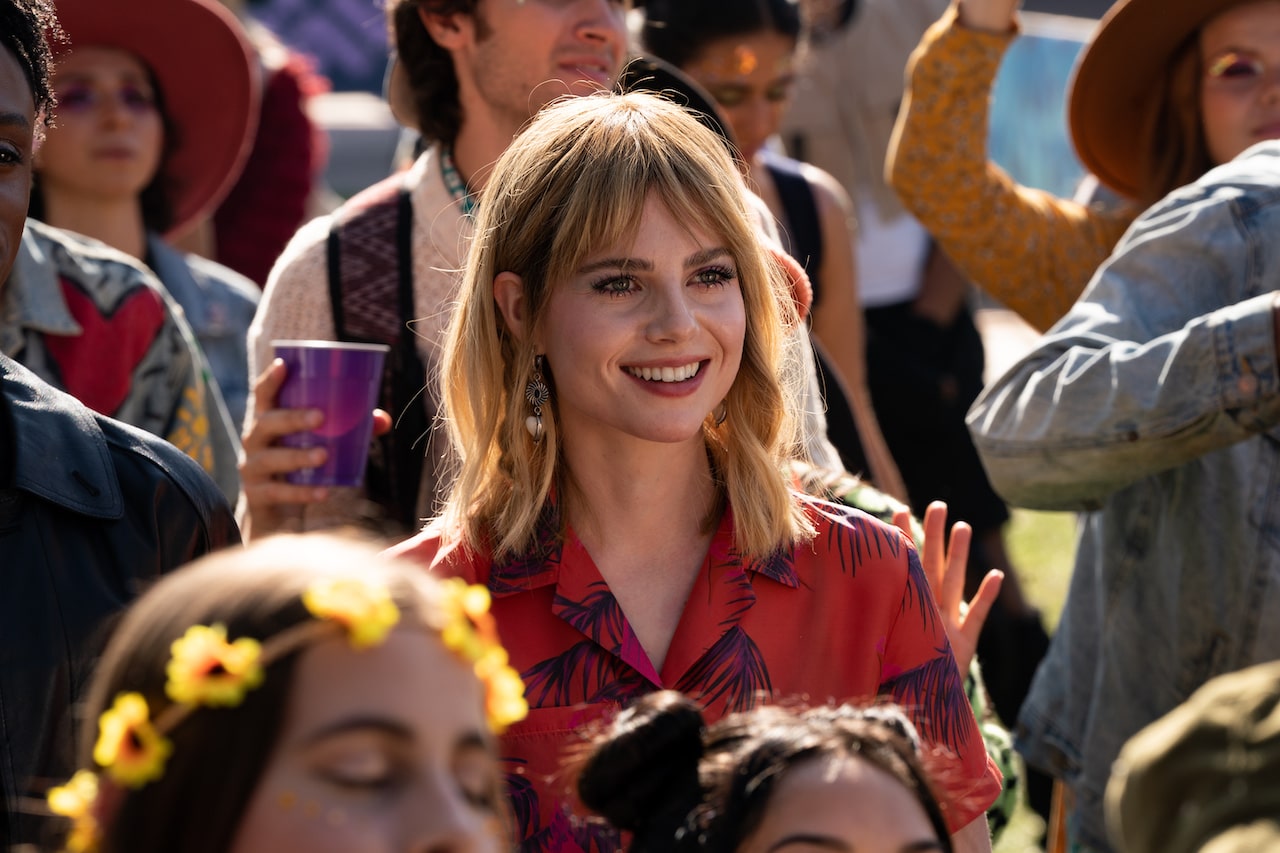As I get older I’ve grown to appreciate the power of music in my everyday life. It’s maybe the best tool at triggering memories, and a great song can hit your heart faster than almost anything. The Greatest Hits takes that musical power to heart, and uses it in mostly effective ways. Plus, Ned Benson, James Gunn will be thanking you for making his new Superman the person audiences will be fawning over. I hope you get considerable royalties!
Right away we see why poor Harriet (Lucy Boynton) is in such a bad way. She’s nearly two years out from losing Max (David Corenswet), in a car crash she thinks she’s responsible for. Only two things are keeping Harriet going: 1) her therapy sessions help, including chatting with her bff Morris (Austin Crute) and newcomer David (Justin H. Min). And 2), the accident has giving Harriet this ability to go back in time though her and Max’s love of music, where she hopes to change the future and set her world right again.
The Greatest Hits should consider the tagline “featuring the greatest movie premise.” Ok, it’s not THE greatest premise, but it’s a spectacular one. Writer/director Ned Benson beautifully walks us through Harriet/Max’s relationship in a unique cinematic way: tying the big moments to some musical cue. In about 20-30 minutes, Benson drops some emotionally resonant songs to paint the picture of the couple’s relationship as the audience plays catch up to Harriet’s present, and establish the rules of his little sci-fi romcom fantasy. I won’t spoil the best cue, but it takes the most annoying song of all time and turns it into the greatest comedy joke in a movie that needed a good laugh. The songs spare the film from spewing too much dialogue, allowing the audience to quickly inhabit Harriet’s memory and feel what she’s feeling the minute a song fires up another memory, with Boynton doing a lot of emotional heavy lifting. We don’t learn a lot about Max, just how Harriet feels about him, and enough to make us hope she finds a way to stop the terrible car crash from happening.
But then Justin Min’s David enters the picture. Min hopefully has a long career in romantic stories; his David possesses Min’s puppy dog eyes and ephemeral manner of speaking that puts Harriet and the audience in a warm dream like state of being. That presence covers up 15ish minutes of missing backstory he doesn’t get for the sake of movie efficiency. Min doesn’t need much of a backstory, because he forges a beautiful connection with Boynton’s Harriet as the movie goes along, also through some great musical cues. Benson the writer betrays Benson the director a bit, writing into a corner and coming up with probably the simpler, safer solution. The problem is, with a premise this good, I hoped we would have found something more deep and profound than the ending The Greatest Hits finds, like perhaps evolving sad memories into happy memories with new meanings for the same song?
I hope we get a do over with this time travel music premise, with The Greatest Hits as the baseline. There’s more good than bad here though, and, more importantly, a chance for every person to put songs to memories in their own lives. Some of mine are so cheesy and wonderfully dumb: listening to Daniel Powter’s Bad Day on repeat after a breakup in college, and in one of the happiest, listening to Birthday by Katy Perry walking home at 8 AM after a stupendous night out in Lisbon.

